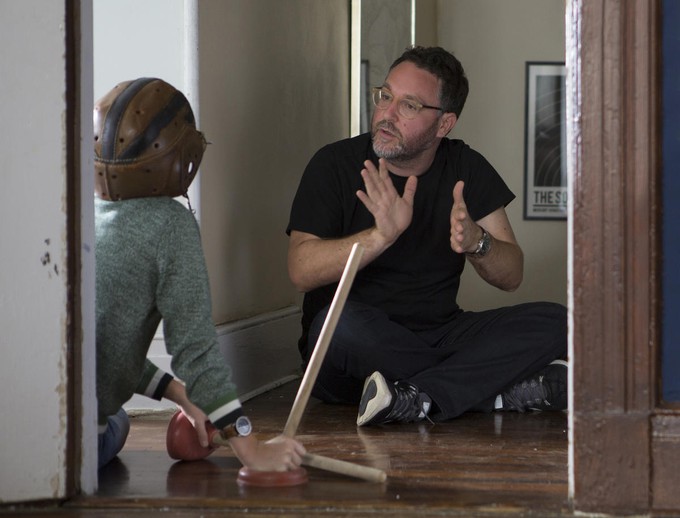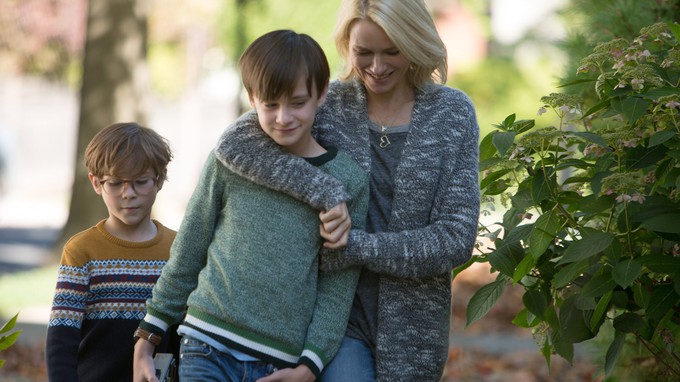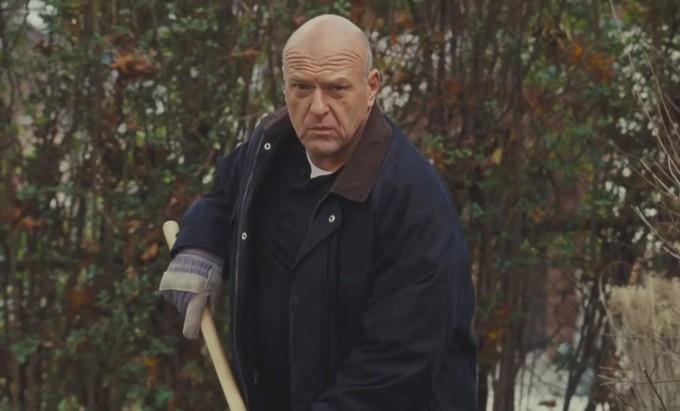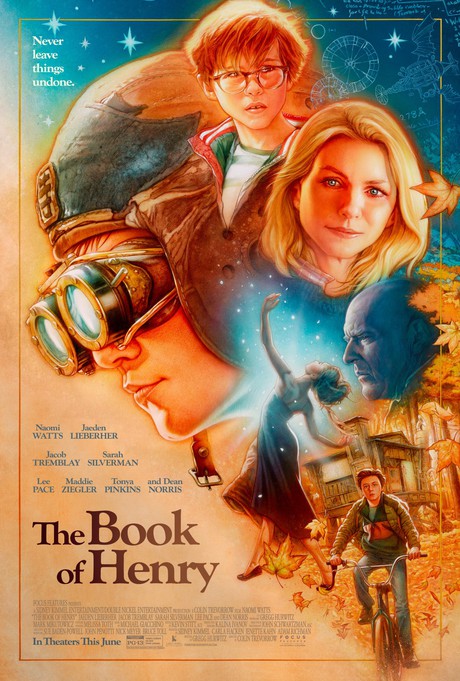Ahoy, squirts! Quint here. There's a lot of conspiracy theories about film critics. Like most such theories they originate from some kind of extravagant paranoia; some lonely souls trying to connect random dots online and thinking they've stumbled onto something. The big one that comes to mind is that a studio will “pay off” critics to all love (usually Marvel) or all hate (usually DC) a movie. The sheer logistics of coordinating something like that and it never coming out should be enough to discredit the notion and that's not even getting into the fact that most of those accused of such a thing have been in the game for over a decade and have hundreds of reviews to back up their opinions.
This isn't limited to film criticism, of course. Gaming journalism was hit harder than any movie critic when reviewers were targeted for real life harassment in the form of SWATing, hacking and relentless, anonymous death and rape threats, all because some gamers didn't like ladies commenting on their favorite past time. Suddenly it was about collusion and trading sex for favorable coverage and all sorts of unproven stuff.
The urge to figure out why someone has a differing opinion is a strong one, especially when you view that person in a position of power. Oddly enough, the accusation empowers that critic even more because you give them the spotlight and tell the world this person is so influential a studio (gaming or movie) will try to buy their opinion. In reality, most of us are just geeks, passionate about the artform we're covering.
When I was growing up there were strong film critic voices out there, but very few who I believed actually loved movies. When someone shits on almost everything in the local newspaper you begin to wonder why they've dedicated their lives to being miserable. That has changed now. The rise of online film criticism brought in a new class of reviewer. They weren't as classically trained, were way more prone to typos and fuck ups, but had a clear passion for the movies.
I include myself in that. I learned on the job, not via multiple years of college. I may not always be on point with my grammar usage or think to double check my work before posting (thus including some horrible spelling errors, like a recent one where I posted a story about Dark Phoenix and spelled “Cyclops” “Psyclops” for some dumb reason), but I like to think I make up for that with a clear love of the format and, hopefully, a little bit of insight as to how I formed my opinion on a movie.
Not everybody online writes like that, but nobody got this job because they were forced into it. When I was a kid I could tell when some newspaper movie critic really wants to be a theater critic or a food critic, but had to take that job. That doesn't really exist online. You put up with the low pay and often insulting comments because you love the art.
We did get a new form of critic that I personally don't care for in this fresh wave of film commenting: the snarky asshole critic. This is the person that loves to ironically watch film and write scathing pieces about it. Every film critic has those moments, and has had them since the beginning of people talking about movies (Pauline Kael had some blistering screeds, for instance), but there are some where that seems to be their reason d'etre.
And that brings us back around to film critic conspiracy theories. There is one I buy into because I've felt the pressure to partake. Not from anyone in particular, mind you, but from the establishment as a whole. I'm talking about the dog piling that goes on around some films. This could be positive or negative. Dislike a movie everybody loved or love a movie everybody else disliked and there's some pressure in being the outlier.
I don't think this is a conscious thing for most critics. I don't know anybody in this business that sees a movie they adore and turns around to write shitty things about it to fit in with the general consensus. But I do think there's an influence, a pull of the tide if you will, that can be strongly felt.
Most of my outlier status is on the positive side. I like some really dumb shit, so films like Movie 43 make me laugh. I've also stood up for Indiana Jones and the Temple of Doom when that wasn't the most popular thing to do and will defend my love of Scary Movie 2 for the rest of my days. But I've been on the other side, too. Try as I might, I can't love Under the Skin like everyone else. It feels too self-important to me. Bellflower was another Film Twitter favorite that I thought was hot garbage.
Film is subjective. That's the beauty of the art form. My opinion on a film is the sum total of my unique life experience leading up to it, just as yours is unique as well. Someone can have a more educated opinion, backed up with deeper knowledge of what the filmmaker was going for and an understanding of that particular filmmaker or genre or cast, but at the end of the day everything is subjective just the same.
This is a long-winded way to say that Colin Trevorrow's THE BOOK OF HENRY was definitely in the crosshairs for many critics. I felt that tidal pull starting with the first trailer. Trevorrow already had a lot to prove to many people having gotten a giant movie right out the gate with Jurassic World and then turning around and landing the coveted Star Wars Episode IX director's chair.

He became the poster child for white male privilege over the last couple years, jumping directly into a huge franchise off of a tiny movie while POC and women seemingly have to prove themselves over and over again to get a similar shot. That line of thinking isn't necessarily wrong, but I think the reason Trevorrow got that boost is simpler than that. The dude is good in a room.
I don't think Steven Spielberg and Frank Marshall sat down with Trevorrow and said “Safety Not Guaranteed is a cute little indie movie. He's white and a dude, so let's give him the new Jurassic Park.” He came into that meeting with big ideas and talked enthusiastically about them. He sold his vision. I've felt this a little bit first hand when I had lunch with him and a few other movie bloggers on the set of Jurassic World. The way he talked about the movie was certainly better than the finished product, which I still like fine enough, but it was clear the man can sell his vision, which is why he got the shot.
You back up that ability with one of the most financially successful movies ever made and that's what gets you Star Wars. You can argue the flaws of Jurassic World all day (and there are quite a few), but you can't argue with the numbers.
Trevorrow has never made a truly great movie, in my opinion. I like Safety Not Guaranteed just fine. Jurassic World has problems, but I like it about as much as I like Jurassic Park 3, maybe even a little better. Book of Henry stumbles in the third act and doesn't quite live up to the premise of the movie, much like Jurassic World, but it's far from the epic failure the film critic world has labeled it as.
Which brings us back to the dog piling. I think Book of Henry's an easy target that could only have been saved from the dog pile by being nothing short of brilliant. It's not. It's a film that has its heart in the right place with some solid performances, but feels a little half baked. The film sets up an interesting premise, which is hard to go into without spoilers, that brings us to an ending that is neither as bugshit crazy as you want it to be or as emotionally earned as it needed to be when dealing with such heavy material.

The charisma of the actors is solid. I instantly felt good with the family dynamic of single mom Naomi Watts, her brilliant son (Jaeden Lieberher) and her not-so-brilliant-but-super-kind-and-loyal younger son (Jacob Tremblay, Hollywood's favorite young actor of the moment). Making Henry borderline sci-fi smart is fun. The first act of the movie rolls along with that and I bought it pretty quickly. Gears shift a little bit as he makes plans to help the girl next door get away from her abusive stepfather, but all that is kept in shadow, you think for a big “all the puzzle pieces falling into place” finale but that really ends up being pretty simple and not worthy of the genius we see on display in the first act.
The payoff's not there. That's the movie's biggest problem to me. It doesn't go off the rails with crazy notions. From the way Film Twitter has responded to this film you'd think it's The Happening. It's not. It just doesn't deliver on the premise it asks us to buy into.
Trevorrow and screenwriter Gregg Hurwitz aren't afraid of sentimentality, which is another thing that many of these ironic movie watchers are allergic to. You'll hear the term “emotionally manipulative” a lot from these types, as if that's not literally the point of every movie ever made. Unless you're watching a one-take documentary you're being emotionally manipulated by a movie. Every cut, every musical note, every camera movement and piece of blocking is designed to manipulate your emotions. That's why you love movies! They make you feel something.
Book of Henry pulls on heartstrings a lot, which I'm sure caused eyerolls for many people. There's a lot of easy shorthand here, but I found that shorthand worked for me. I cared for the people in this movie, at least the central family. We don't spend enough time with Maddie Ziegler's character to see the impact of her abuse, so the film relies on the power of that abuse alone being enough for us to want to see her escape. It's a shortcut and one I don't think they had to take, but it's not a movie-ruiner.
The film needed to do one of two things by the end: either double down on the almost supernatural intelligence of Henry and have it play out like a heist movie where we see all the pieces set up and then see every angle on the plan being executed or it needed to build to a stronger emotional release than it did. It tries to meet somewhere in the middle and isn't nearly as effective as it could have been if it had stuck to one track or the other.
Watts is very strong in the movie, Lieberher sells the boy genius and Tremblay is adorable enough to forgive some not great line readings. I like the roles each play in this family unit and the love they feel towards each other comes through crystal clear. That alone is enough to invest yourself emotionally in this family.

Dean Norris' Glenn Sickleman is a pretty one note bad guy. He plays the dour, abusive stepdad pretty well, but I think his character was missing a bigger brain. He should have been more conniving, less easy to peg. I would have liked to have seen this ultimately come down to a battle of wits between this brilliant, evil dude and a super-smart kid. Sickleman is a despicable character, but he poses no real threat to anybody in the movie except is stepdaughter and I think there was a big missed opportunity for a bit of cat and mouse tension here. It didn't need to be Sherlock versus Moriarty, but a little more smarts and cunning from Sickleman would have gone a long way, I think.
The rest of the cast is rounded out with some nice character work by Lee Pace, Sarah Silverman and Bobby Moynihan. Silverman in particular does a great job with her down on her luck best-friend character. Her... let's say tough... relationship with Henry is one of my favorite things with the movie.
It's shot well, it's directed well (good camerawork and pacing) and the acting's mostly great throughout. A real trainwreck wouldn't be all those things. What this movie is is just okay. It's a fun premise that is not resolved in a satisfying way. There are some conveniences that feel a little cheap and that undercuts the emotion they were going for. There's a lot of missed opportunity for tension and exhilaration in the third act. You'll get a couple iffy line readings from all the major players, including Watts who has a particularly bad one where she's talking to herself and comes to an emotional realization, but all that adds up to an okay movie to me, not an ill-conceived disaster. It's a decent movie that could have been great if the script had a little more time to bake. In particular they needed to answer one question that struck me halfway through: The characters can see the abuse happening next door from their windows... They need undeniable proof. Why not video record it? There's your proof.
I don't foresee too many people declaring this a brilliant movie, which makes it easy for that dreaded critical tide I mentioned earlier to pull you along. It's impossible to move from “loved it” to “hated it” with such a subtle influence, but not all that hard to go from “it's okay” to “I guess it is pretty bad.”
I'm not saying those that hated the movie were swept up in this tide (subjective art and all that, remember), but the movie did make me think the loudness of the outrage over this film was pretty exaggerated. You can never really see into the hearts of others, especially online, but that was my impression after the lights went up at my early afternoon mall-theater viewing of Book of Henry today and it was effective enough to get me to feel the need to express those thoughts here.

Thanks for following along with my ramblings on this one. Hope at least some of it made sense.
-Eric Vespe
”Quint”
quint@aintitcool.com
Follow Me On Twitter

